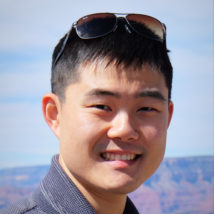The Promise of Whistleblowing in China
A notable example of Chinese neologism, the creation or use of new words, from the coronavirus pandemic is the notion of the whistleblower, or chui shao ren 吹哨人. The emergence of whistleblowing in the Chinese public discourse is inextricably linked to Dr. Li Wenliang, who was among the first to spread the word about a mysterious “SARS-like” outbreak in Wuhan in December 2019. Chinese authorities detained the doctor for the alleged crime of rumormongering. Dr. Li died of covid-19 in February 2020, making him one of the tens of thousands of victims in China. After much public outcry, local police exonerated Dr. Li of said charge more than a month after his death.
The idea of whistleblowing is new to the Chinese everyday lexicon. In fact, it is so new that media reports in China about Dr. Li Wenliang almost all include at least a paragraph about the origin of the term in English and the example of the US whistleblower protection program. Its newness notwithstanding, the term caught on quickly in China.
Online uses of the term even got creative. A month after Dr. Li Wenliang’s death, another Wuhan physician by the name of Ai Fen came forward with more insider knowledge in a magazine interview. According to the interview, Dr. Ai shared some initial testing results from her emergency room to a social media group that included Dr. Li Wenliang. Alarmed by these posts, Dr. Li spread the word much further in his social circles. Dr. Ai Fen therefore came to be known as the fa shao ren 发哨人, or whistle-giver, acknowledging her role in gathering the first few reports that became the basis of Dr. Li Wenliang’s whistleblowing efforts.
Yet, the Chinese state does not appreciate the viral online recognition of Drs. Li and Ai. The Chinese Embassy in France, for example, published a staunchly worded op-ed that claims the “politicized” labeling of Dr. Li as a whistleblower to be “ill-intentioned, aiming to divide the people of China and to dishonor Dr. Li’s name.” Dr. Ai’s interview has been purged from the Chinese internet. Dr. Ai herself has gone missing, and her whereabouts remain unknown as of this writing.
Instead of the whistleblower, the Chinese state’s preferred term is the inside informer, or neibu jubao ren 内部举报人. In fact, the State Council of China, in an official document, sees the inside informer as synonymous to the whistleblower. The problem is that the two terms are anything but synonymous. Whereas the whistleblower seeks to expose illegal or unethical conduct that is against the interest of the general public, the inside informer snitches on others to collect a monetary reward. The crucial difference is that the whistleblower is, by definition, civic-minded, but the inside informer self-interested.
More importantly, the whistleblower brings to light critical information so as to hold disgraced officials or corporate actors accountable to the public. On the contrary, the inside informer sends a tip to a higher-level authority, seeking to hold potential violators accountable to their bureaucratic superiors. Together, they are textbook examples of the difference between upward and downward accountability.
The emergence of whistleblowing in China is a welcome development, but the Chinese state’s attempt to co-opt whistleblowing into its inside informer mechanism illustrates the authoritarian government’s lack of interest in truly bottom-up, downward accountability. My coauthor Judy Shapiro and I explore these and many related issues in our new book, China Goes Green: Coercive Environmentalism for a Troubled Planet. We argue that effective governance, even in the longest lasting authoritarian regime on Earth, depends on bottom-up accountability. The whistles must blow.


